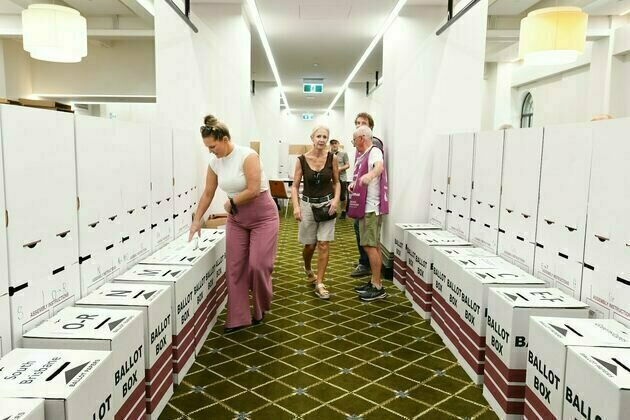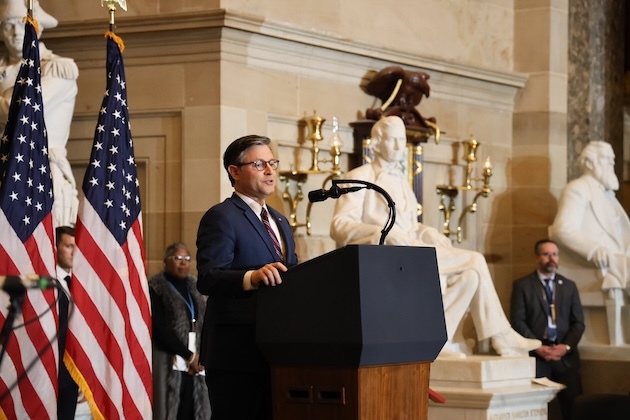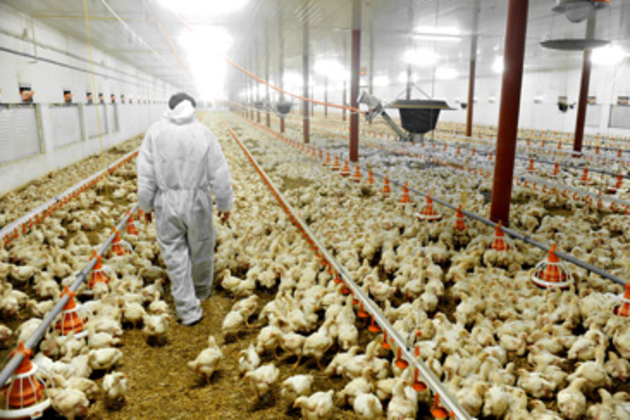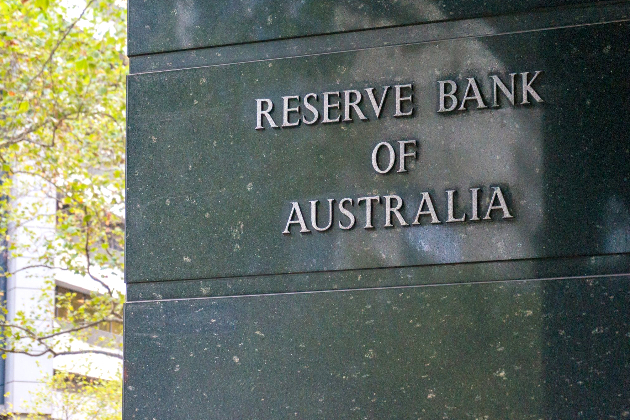I looked at 35 years of data to see how Australians vote. Here's what it tells us about the next election
The Conversation
20 Feb 2025, 19:17 GMT+10

In the 2022 federal election, two demographics were key to the final outcome: women and young people.
With another election fast approaching, will they swing the result again?
To answer this question, I turned to the Australian Election Study (AES) data spanning the period from 1987 to 2022, to investigate how different demographics have voted over time.
I found that, generally, Australian women and young people tend to favour left-of-centre parties.
However, specific election issues can have a substantial impact, making the political context of each election crucial. So what can we expect this time around?
Last year highlighted a growing gulf in political leanings between the sexes worldwide.
Young women are increasingly progressive. Young men - particularly Gen Z (born after 1994) - are leaning more conservative in many countries, including the United States, China, South Korea and Germany.
My analysis of the Australian data mirrors global trends, but with a twist.
Young Australian women are moving sharply to the left. But unlike in many other countries, young Australian men are also shifting left, just at a slower pace.
Australia's leftward move across generations is reflected in both self-placement on a left-right ideological scale, and in the vote in federal elections.
In the 2022 Australian election, the Coalition received its lowest-ever share of the women's vote at just 32%.
Only 24.3% of Millennials (21.9% of men and 25.7% of women) voted for the Coalition in 2022.
These are the lowest levels of support for either major party among younger people in the history of the survey.
Among Gen Z, a slightly higher proportion of 24.6% voted for the Coalition (34.0% of men and 19.8% of women).
In theory, women's leftward shift is driven by several factors. These include higher education levels, greater participation in professional work, and exposure to feminist values. Despite Australia's post-industrial, egalitarian image, persistent gendered inequalities and discrimination also play a role.
Meanwhile, young men's move to the left can be attributed to progressive and egalitarian socialisation. Plus, unlike in other countries, Australia lacks Donald Trump-like figures who could mobilise anti-feminist or hardline conservative sentiments. This limits the expression of such views at an aggregate level.
This leftward shift is, in part, a generational effect - or at least a reflection of the times.
The generational angle is crucial, as the 2025 federal election will be the first in which Millennials and Gen Z together will outnumber Baby Boomers as the dominant voting bloc in Australia.
This shift should shape how political parties campaign, whom they target, and which issues take centre stage.
My analysis highlights another important angle. Over the study period, voting decisions have increasingly been driven by policy issues, with 48% of Australians citing them as the primary factor. This is followed by party affiliation (29%), party leaders (14%) and local candidates (9%).
In 2022, 54% of voters reported policy issues as the main factor influencing their choice.
Across election years, I identified the most prominent and recurrent election issues that voters identified as influential. I added these issues to my model to see how people who care about these issues lean (left-right) and whether men and women differ in their political leanings (progressive-conservative). I also considered other factors known to impact voting, including:
sociodemographic factors (education, marital status, social class, home ownership and rural/urban residency)
familial socialisation (what their parents' political preferences were)
social network factors (whether they're religious or a member of a union)
electoral context (what each respondent said were the most important voting issues)
Overall, women tend to be slightly more left-leaning on policy issues than men, and while this difference is statistically significant, it is small and the general trend holds across both sexes.
Compared with Boomers, each successive generation is more likely to vote for a left party. Gen Z is the most left-leaning (though their smaller sample size warrants some caution in interpretation).
Unsurprisingly, people vote according to who they think will best address the policy areas they care about most.
Those prioritising interest rates, taxation or economic management favour right-wing parties. Voters most concerned with health, Medicare and climate change are more likely to vote for the left.
Education, class and social networks matter, too. Highly educated, working-class, non-religious and union-affiliated voters tend to support left parties. So, too, do those raised in left-leaning households.
While the size of these effects varies slightly between men and women, the overall direction remains the same.
The thing about election issues is that they are highly time-sensitive. Take the GST: it was one of the defining issues of the 1998 election, yet was largely irrelevant after 2004.
In recent years, left-leaning issues - the environment, health and Medicare - were more likely to be front-of-mind when Australians all of ages headed to the polls. This gives Labor and the Greens an issue-owner advantage.
Cost of living (spanning day-to-day expenses, interest rates and housing affordability) has now become the defining issue of this election cycle. At first thought, among the two major parties, the Coalition is traditionally seen as a better economic manager.
However, my analysis from 2022 election data shows that, compared with the 2019 election, fewer people considered the Coalition the best manager of the economy among those who considered it the most important election issue.
Further, for the first time in the past five elections, a majority of the voters perceived Labor as more aligned with their own views on immigration, refugees and asylum seekers. These issues, historically seen as Coalition strongholds, are also likely to be key this time around.
For the Coalition, this is bad news. But for Labor, the challenge is twofold: retaining younger, progressive voters while addressing broader economic anxieties.
With growing voter volatility and a diminished sense of party loyalty, neither major party can rely on a stable base.
Australians are increasingly willing to shift allegiances, including to the increasing supply of independent alternatives. Both Prime Minister Anthony Albanese and Opposition Leader Peter Dutton will have to convince voters they have the best solutions for the key issues.
 Share
Share
 Tweet
Tweet
 Share
Share
 Flip
Flip
 Email
Email
Watch latest videos
Subscribe and Follow
Get a daily dose of Africa Leader news through our daily email, its complimentary and keeps you fully up to date with world and business news as well.
News RELEASES
Publish news of your business, community or sports group, personnel appointments, major event and more by submitting a news release to Africa Leader.
More InformationInternational
SectionRecord cold grips millions as US battles deep freeze
BISMARCK, North Dakota: More than 95 million people faced extreme cold on February 18 as a polar vortex sent temperatures to record...
Taiwan defends Strait’s status after China criticizes Canada
TAIPEI/BEIJING: Taiwan's defense ministry said this week that the Taiwan Strait does not belong to China, and any attempts to create...
No unified European army despite Russian threat, says Polish FM
WARSAW, Poland: European nations will not form a single, unified army despite growing security concerns over Russia, Polish Foreign...
Speaker Mike Johnson: Western survival hinges on national priorities
LONDON, U.K.: Republican U.S. House Speaker Mike Johnson said this week that Western countries must focus on their national interests...
First human H5N1 case confirmed in Wyoming as bird flu spreads
CHEYENNE, Wyoming: The state reported its first human case of Type A H5N1 influenza, which is spreading through animals and some people...
Europe faces hard choices amid rising threats, warns French FM
MUNICH, Germany: Speaking at the Munich Security Conference, French Foreign Minister Jean-Noel Barrot warned that Europe must brace...
Business
SectionThames water secures legal lifeline, avoids collapse
LONDON, U.K.: A judge has approved an emergency financial plan to prevent Britain's largest water company, Thames Water, from collapsing,...
U.S. stocks tumble as Trump policies startle investors
NEW YORK, New York - Concerns over U.S. President Donald Trump's startling diversions from his country's long-held policies, and the...
Southwest Airlines cuts 1,750 corporate jobs in first-ever layoffs
DALLAS, Texas: Southwest Airlines is laying off 1,750 employees, or 15 percent of its corporate staff, in the company's first significant...
Australian central bank cuts interest rates for first time since 2020
MELBOURNE, Australia: Australia's central bank has cut its benchmark interest rate for the first time in more than three years, signaling...
Brazil joins OPEC+ ahead of key UN climate summit
BRASILIA, Brazil: Brazil has officially approved joining OPEC+, aligning itself with the world's major oil-exporting nations just months...
U.S. stock markets in sharp retreat Thursday
NEW YORK, New York - U.S. stocks fell sharply Thursday as profit-takers moved in to take the cream off the substantial gains that have...













